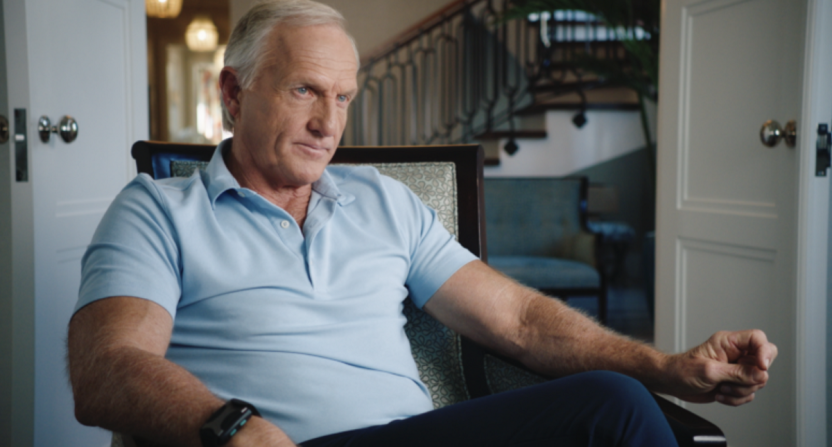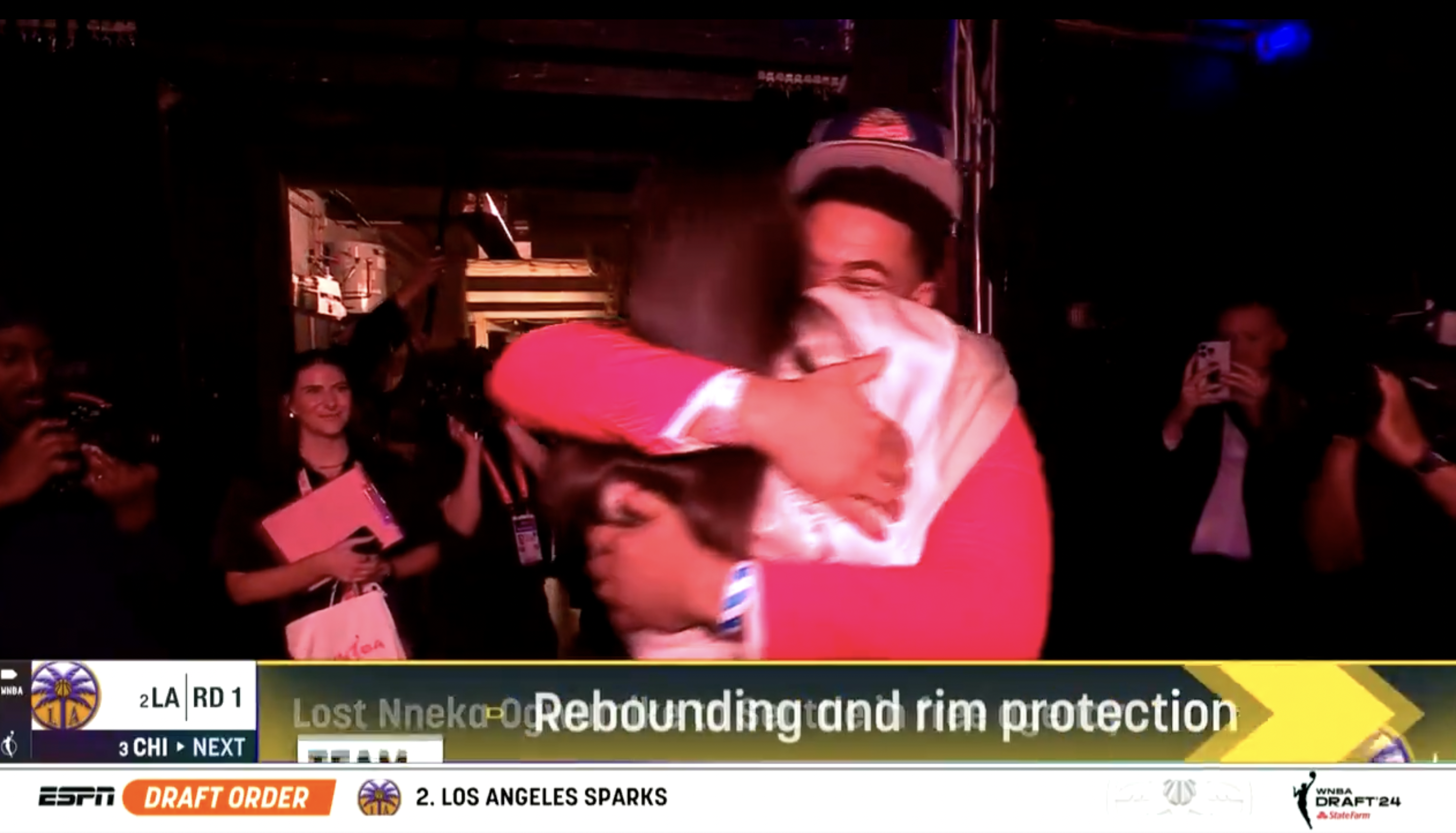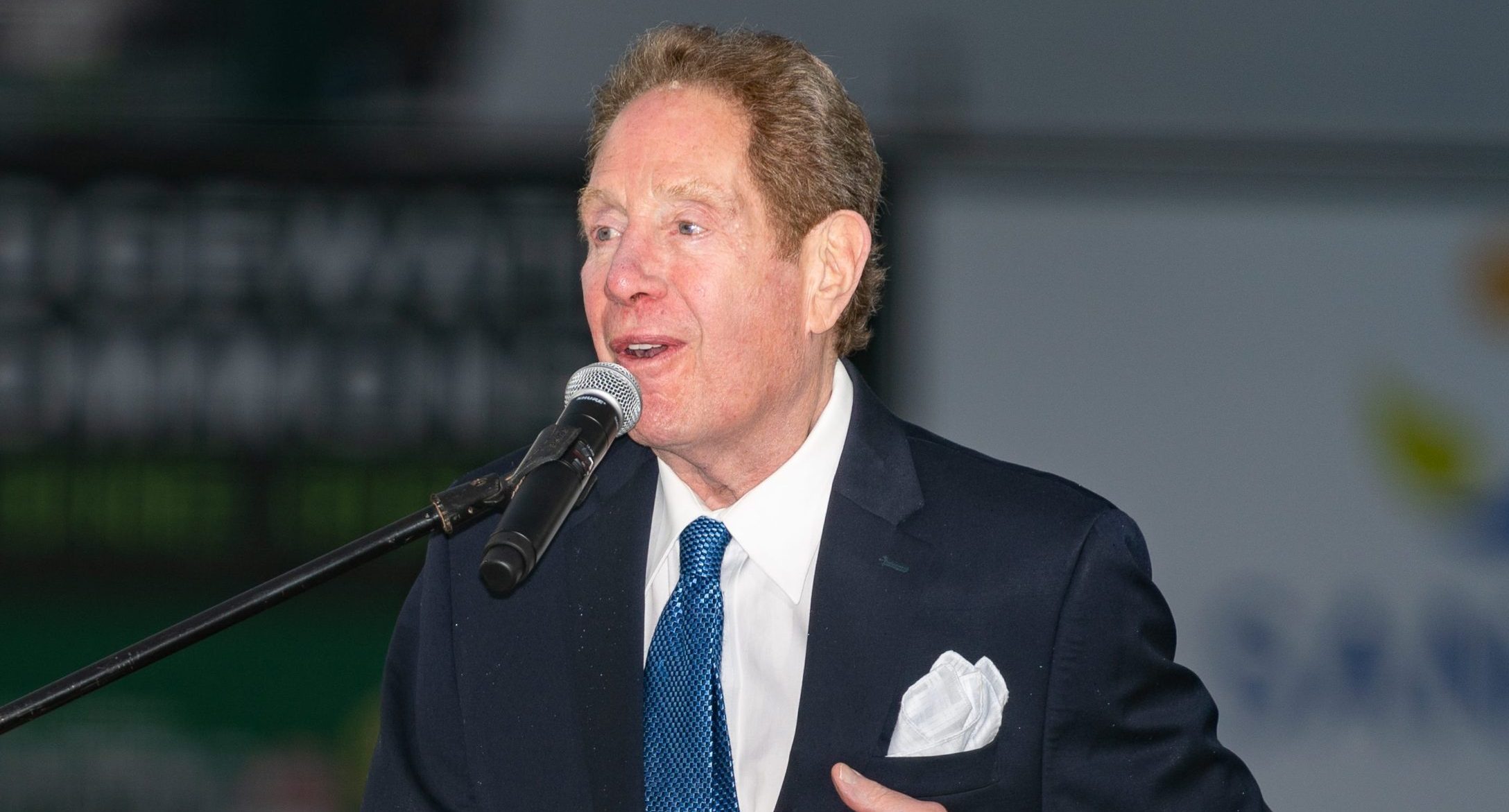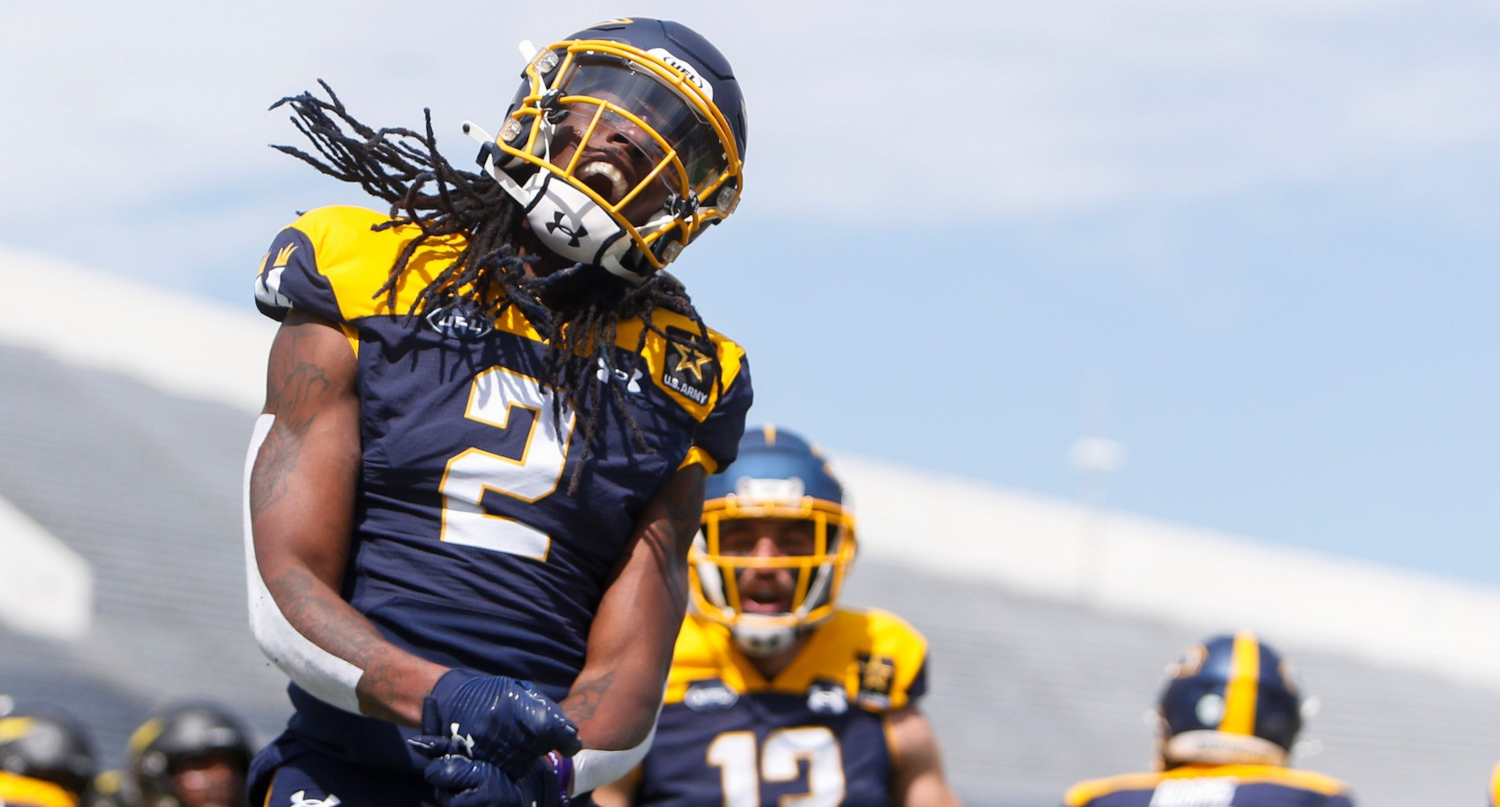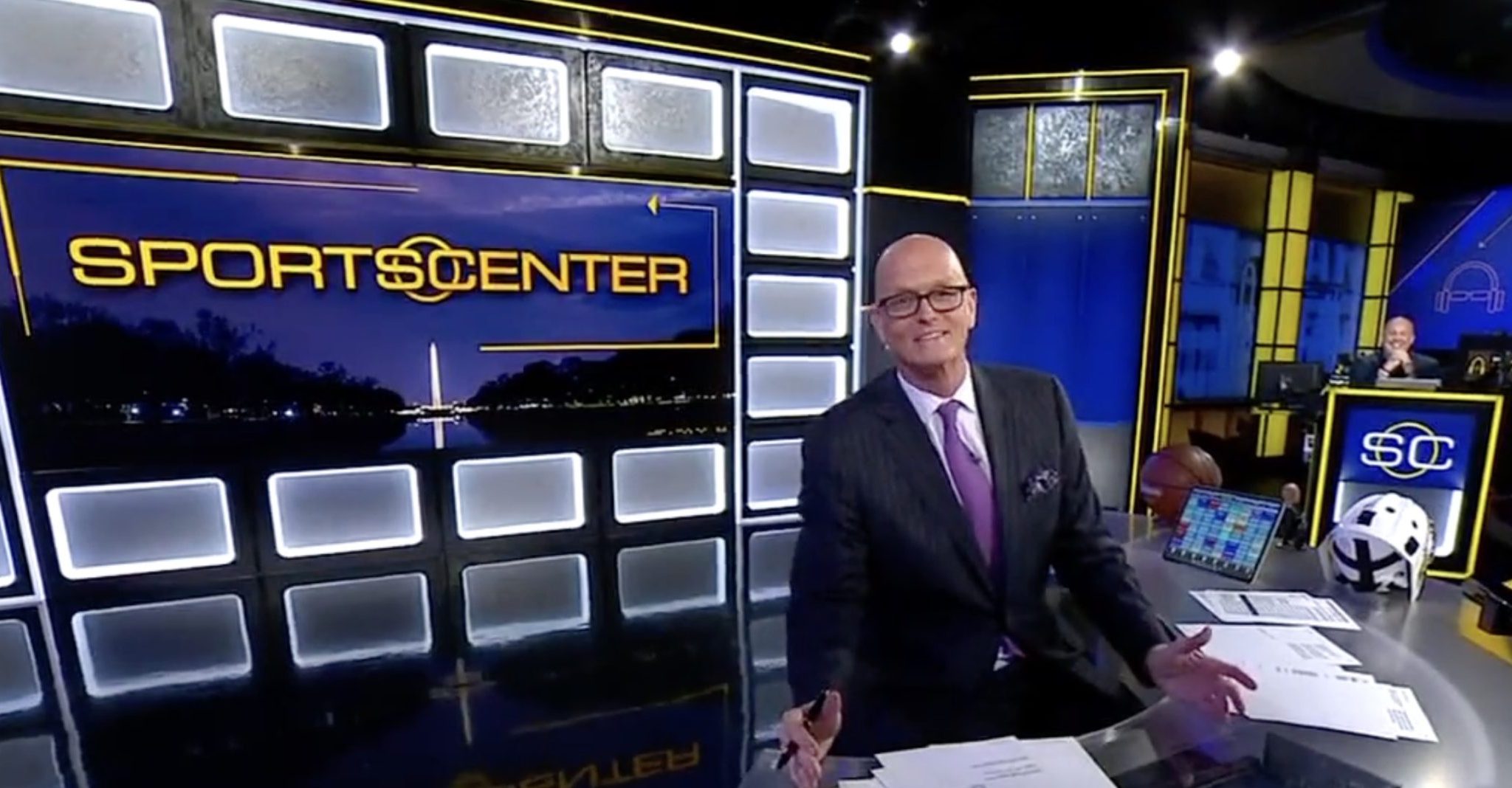Watching Shark, the latest installment in ESPN’s 30 for 30 series, is an exercise in cognitive dissonance.
On one hand, it’s a decent entry into the canon, looking back as it does at a sports moment with decades of remove, interviews with all the major players, and plenty of insight into Greg Norman, one of the best players of his generation.
On that level, it works pretty well, playing as a sort of mirror-image, minor-key version of The Last Dance (which makes sense considering the involvement of that doc’s director, Jason Hehir, here co-directing with Thomas Odelfelt.) Instead of teasing out the kind of sociopathic competitiveness that led to Michael Jordan’s unparalleled on-court dominance, the glimpses we get of Norman go a long way towards revealing why often came up short in the biggest moments.
The rough cut watched for this review ran about 76 minutes, and the film packs a lot in, taking us back to the 1986 Masters (when Norman infamously sent an errant shot into the patrons on the final hole en route to losing to Jack Nicklaus.) That’s one of the most famous tournaments in golf history, and usually when it’s discussed it’s almost always through the prism of Jack’s comeback win, with a slight mention of Norman’s approach that did him in. Watching Shark, though, we get a look at how easily history could shift. Everyone remembers Verne Lundquist’s legendary “Yes sir!” for Nicklaus.
https://www.youtube.com/watch?v=6X9-LRZNM60&ab_channel=BrettDunkin
Less memorable was the same line he delivered for Norman, when he himself holed a putt on 17 to tie Nicklaus for the lead. There’s a parallel universe where the same line from the same broadcaster on the same hole is remembered for describing Norman, a glaring example of history being written by the victors.
From there, the doc runs through the gamut of Norman’s close calls at various majors in the interim decade, including a multiple year drought without any Tour wins from which Norman eventually recovered, crediting Nicklaus for helping him do so. We also get a look at Norman finally winning majors, which he did twice in his career, both British Opens. There’s an excerpt from a beer ad which is just about the perfect time capsule, as it spends the entire time essentially listing off all of the critiques anyone had ever lobbed at him.
It’s wild that in 1986 Norman was already seen as a bit of a failure for having not yet broken through. He was only 31 then, and when even an ad starring him and celebrating his success spends most of the runtime mocking him, it’s telling.
Beyond his own failure, Norman had a legacy of being defeated by miraculous shots. We get all of those, too, from Larry Mize’s famous Masters chip-in to lesser-known moments like Robert Gamez holing out to beat him at Bay Hill in 1990. All of this is a setup to a more in-depth look at the 1996 Masters, which makes up the bulk of the second half of the film. We also see Norman back at Augusta in the present-ish day, playing some of the shots alone that he’d played under pressure and describing the accompanying feelings.
There’s another Last Dance conceit, too, where Norman, being interviewed, watches some of the key moments of that final round in ’96. Those are some of the most fascinating moments in Shark, because there’s truly no way to know why Norman is subjecting himself to this. (At one point Nick Faldo, Norman’s foe, reacts at one point in shock when the filmmakers tell him Norman went back to Augusta to walk some holes.) It almost becomes a portrait of defiance, in a way; not letting the outside world paint him as a choker or a failure by going through that collapse moment-by-moment.
The confusing aspect, though, is Norman might be one of the least self-aware people in all of sports. It’s tempting to give the film credit for putting him out there without any real mercy. None of the many golf luminaries who participate are critical of Norman (the closest might be Tom Watson assuredly and amusingly chiming in with “I’ve always said that Greg was snakebit.”) But there’s something awkward and fascinating watching Norman try to convince everyone else of his truth so persistently that it becomes clear he still hasn’t convinced himself.
In a vacuum, on those levels, Shark is certainly worth watching. The problem for the documentary, though, is that it’s not being released in a vacuum. It’s instead being released at a time that Greg Norman is currently at the forefront of the same Saudi-backed golf league that Phil Mickelson was involved with. Mickelson’s current absence (it’s unclear whether it’s by his own choice or not) and loss of sponsors over his admitted willingness to leverage Saudi money for PGA Tour concessions was bad enough, but Norman is the CEO of the entire operation!
Just this week he went on the record with the Telegraph’s James Corrigan, spouting the exact same “What about?” talking points that everyone who sees a massive unethical payday does in his position. It’s striking to see him granted access to Augusta for the filming of Shark (presumably before his Saudi involvement really took off) and then admit he wasn’t even invited to the Masters this year, as he usually is.
“Look, I’ll be honest with you, yes, the criticisms have stung a little bit, but I’m a big believer that you can’t run through a brick wall without getting bloody,” he says. “I’m willing to run through this wall because I’m a big believer in growing the game of golf on a global basis.”[…]“The PGA Tour are not directly saying ‘sportswashing’, but they’re having people say it for them. Yet it’s ok for them to go into China, with the Uyghurs? Seriously? Step back and take a really good, honest, hard look at the facts and then you’ll see, ‘Hey, Greg Norman is not such an ogre after all. Greg Norman and his team of world class individuals’.”
No one would jump to defend the PGA Tour as purely good, of course, but Norman is wildly missing the point. (And while combating whataboutism is almost impossible, it should also be known that Norman is comparing working for a sportswashing golf venture funded directly by the Saudi government to the PGA Tour holding an event in China.)
Norman’s grip on the issues at hand here is as shaky as it was on his clubs for that final round in 1996.
Shark never mentions any of these issues, which maybe isn’t a surprise. (And again, this was a rough cut; there’s a chance something is added.) But it’s really difficult to just focus back on Greg Norman, the golfer, when Norman is at the center of one of the biggest stories in golf right now for very different reasons. It’s not a complete picture, probably through no fault of the filmmakers; Norman was only named CEO of LIV Golf Investments in late October, 2021.
Shark still works, even with that outside knowledge, because there’s enough background and interaction with Norman that it becomes obvious just how he might end up being the face of this sort of venture in 2022.
(Shark airs April 19th on ESPN at 8:30 PM Eastern, having been pushed back he having been pushed back from its original premiere date of April 5th, where it would have been part of ESPN’s week of Masters coverage.)

